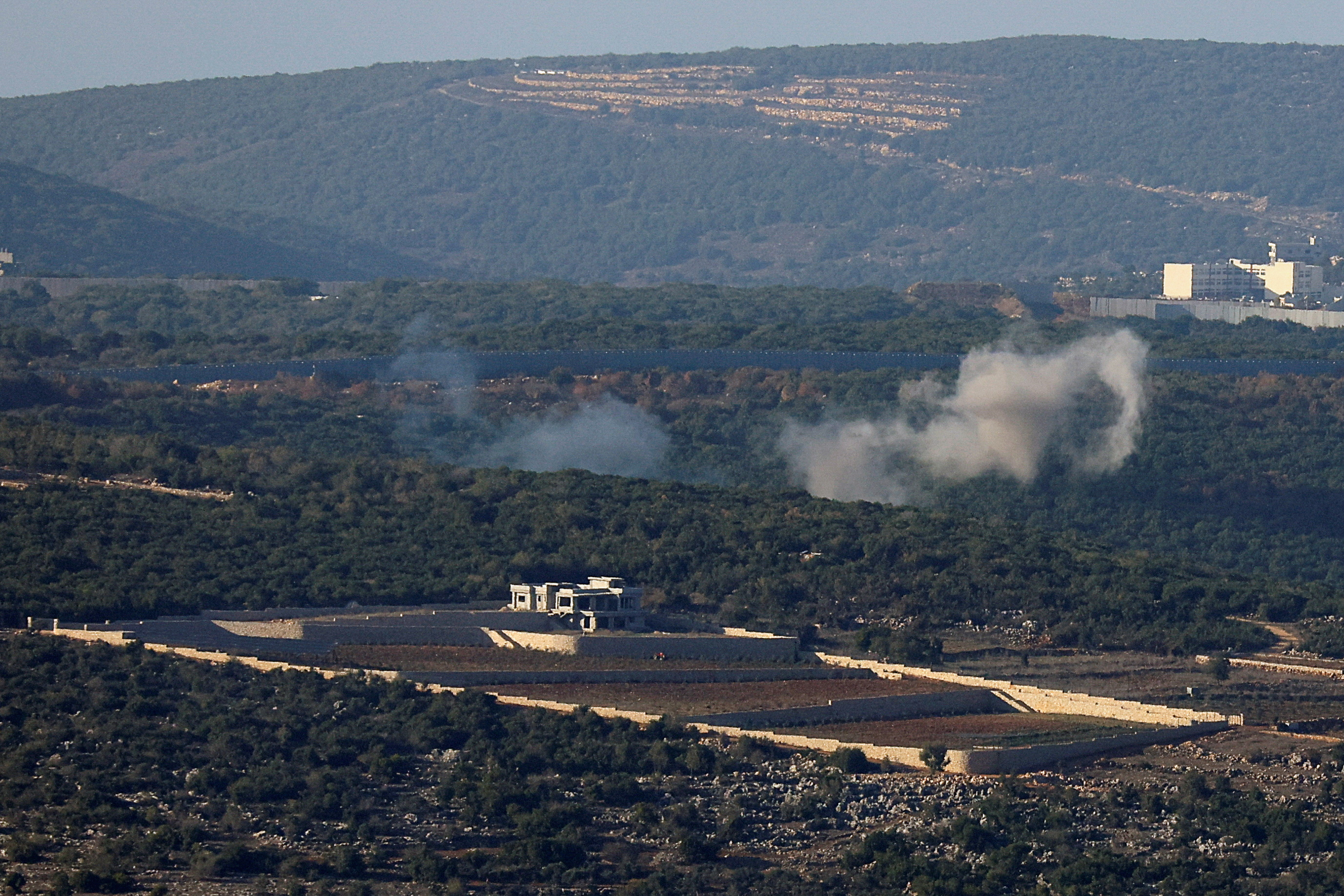
At least two people have been killed in an Israeli attack in southern Lebanon, according to first responders and local media, amid growing concerns that the Israel-Hamas war could spread beyond Gaza.
Two people were killed in an Israeli strike on the town of Ainata on Monday, according to a first-responder organisation affiliated with the Hezbollah-allied Amal Movement and Lebanese state media.
It was not immediately clear if those killed were civilians.
The Israeli military said earlier that “terrorists fired towards several locations in northern Israel”.
The army said its artillery struck the source of the fire and hit posts which “terrorists used to carry out launches toward Israel”.
In a separate attack, Israeli forces shelled media teams and journalists in the Lebanese border village of Yaroun, official Lebanese news agency NNA reported.
Issam Mawasi, an Al Jazeera cameraman, was injured in the shelling, and the network’s broadcast vehicle was damaged.
Separately, the Israel Electric Corporation said an employee died on Monday after being wounded in a missile attack carried out the previous day by the Iran-backed armed group Hezbollah.
Hezbollah has been trading fire with Israeli forces from its stronghold in southern Lebanon after Israel launched an assault on Gaza last month in response to a Hamas attack on southern Israel.
Palestinian officials in Gaza say more than 11,200 people, including more than 4,600 children, have been killed since the Israeli assault began on October 7.
Around 1,200 people were killed in the Hamas attack on southern Israel, according to Israeli authorities.
The exchanges of fire along the Israel-Lebanon border mark the deadliest violence in the area since Israel and Hezbollah fought a month-long war in 2006.
More than 70 Hezbollah fighters and 10 civilians have been killed in Lebanon, and 10 people including seven soldiers have been killed in Israel. Thousands more on both sides have fled shelling.
Until now, violence has largely been confined within a band of territory on either side of the border.
Israel has said it does not want war on its northern front as it seeks to topple Hamas in Gaza. The United States has said it doesn’t want conflict to spread around the region, sending two aircraft carriers to the area to deter Iran from getting involved.
But that has not stopped the escalating rhetoric from Hezbollah and Israel.
Hezbollah leader Hassan Nasrallah said on Saturday that the Lebanon front would “remain active”, and said there was “a quantitative improvement” in the pace of the group’s operations.
Israeli Prime Minister Benjamin Netanyahu warned Hezbollah on Monday not to broaden its attacks.
“This is playing with fire. Fire will be answered with much stronger fire. They should not try us, because we have only shown a little of our strength,” he said in a statement.
Asked at a news conference on Saturday about what Israel’s red line was, Israeli Defence Minister Yoav Gallant said: “If you hear that we have attacked Beirut, you will understand that Nasrallah has crossed that line.”
‘Tit-for-tat’
Lebanon’s caretaker Prime Minister Najib Mikati, in an interview with Al Jazeera on Sunday, said he was reassured by the “rationalism” of Hezbollah so far.
“We are preserving self-restraint, and it’s up to Israel to stop its ongoing provocations in south Lebanon,” he said.
Lebanon took years to rebuild from the 2006 war and can ill afford another one, four years into a financial crisis that has impoverished many Lebanese and paralysed the state.
Israel has long seen Hezbollah as the biggest threat along its borders. The 2006 war killed 1,200 people in Lebanon, mostly civilians, and 157 Israelis, mostly soldiers.
US Defense Secretary Lloyd Austin characterised the violence as “tit-for-tat exchanges between Lebanese Hezbollah and Israeli forces in the north”, predicting Israel would remain focused on the threat from Hezbollah “for the foreseeable future”.
“And certainly no one wants to see another conflict break out in the north on Israel’s border in earnest,” he told reporters in Seoul.
Mohanad Hage Ali of the Carnegie Middle East Center said: “I can definitely see a wider escalation, but I am not sure about a full conflict that nobody wants.
“Nobody wants one on one hand, and I think the US is playing a strong role keeping things under control.”







